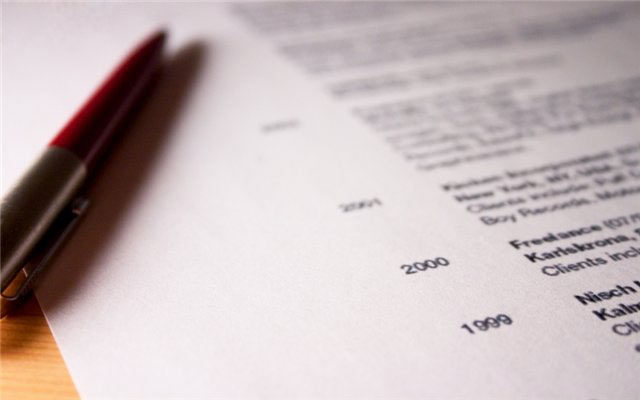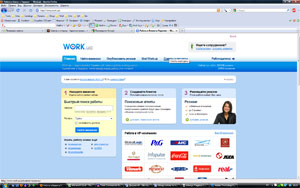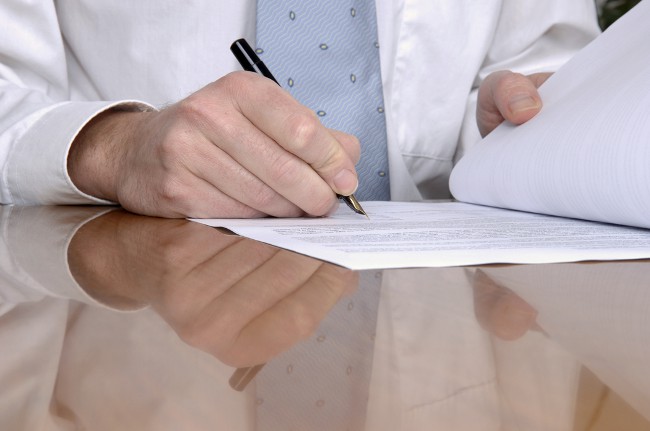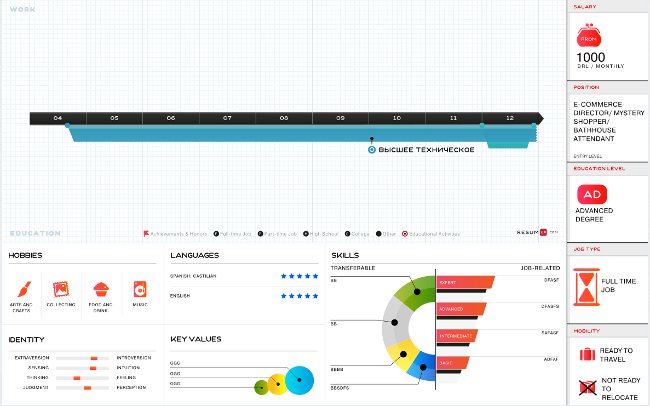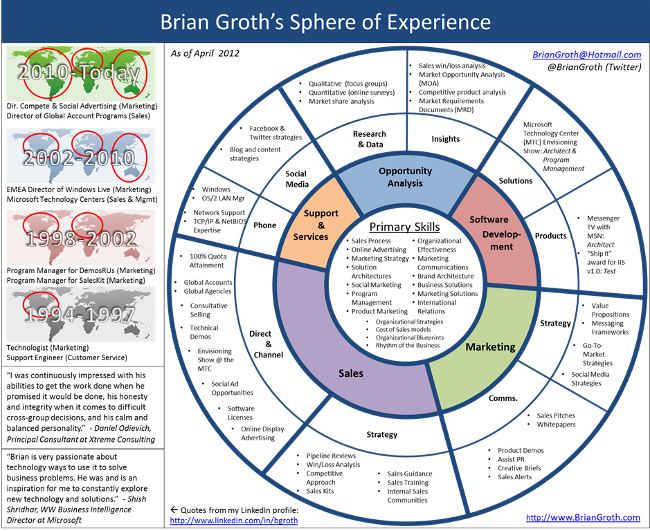Secrets of a good resume

Looking for a job, you probably have more than oncefaced this phrase: "Send your CV to the address ...". Why is the resume so important when hiring? What should be the resume? What do you need to specify in your resume, and what is better to keep silent about? Let's try to find out secrets of a good resume.
So, for starters - what is a resume? This document can be compared with the autobiography of a person, to replace which he came. Summary - this is a summary of biographical facts, mainly related to the work experience, knowledge and skills of the applicant.
Summary saves time - Your and your potential employer. After all, the average time spent on reading the CV is about a couple of minutes - if your candidacy is not interested in the employer, then there is no need to invite you for an interview.
Resume is your business card, you will be judged on it. That is why the resume should allocate you from the general flow of candidates to this or that post. What do you need to do for this?
There is no single form of writing a resume, it is spelled arbitrarily. But it is better if there is a definite structure. Ideal is considered a summary of no more than one page, in extreme cases - two. The structure of the resume includes the following blocks:
- Contact Information
- goal
- Qualification
- Experience in reverse chronological order
- Education
- Additional Information
- Recommendations
In the block contact information should place information about your full nameand surnames (patronymic - optional), contact phone numbers (those of which you are really easy to "call"), mailing address (including the index), e-mail address. If you do not already have an e-mail box, then it is recommended to send it before sending it - many employers prefer to communicate with candidates by e-mail.
Block "Goal" in general, it is not necessary, but it is desirable. In this block, you should indicate in two or three sentences the position and why you are applying for it. If you send a CV for a particular job, you should indicate the name of this vacancy or its code. If you have several different goals, it will be more convenient to make several different CV options that will be focused on these goals.
In the block "Qualification" You need to indicate what are important, in terms ofpotential employer, professional skills and achievements you possess. Write your work experience in reverse chronological order, indicating the name of the company you worked in, the direction of its activities, the terms of work, your position and job responsibilities. Do not forget to also indicate what you achieved at this workplace.
For information on Your education There should be little room in the resume. It is necessary to observe this rule: the more time passed after the graduation, the less space should occupy this item in the resume. In this block, the summary is also relevant to report on their awards, especially important for the future work of the studied disciplines. In addition, it is possible to mention additional education, for example, courses, trainings, seminars, etc.
In the block "Additional Information" You should indicate whether you own foreignlanguages, at what level. Also indicate whether you have a driver's license, the level of computer ownership, whether you are a professional organization. You can also mention your hobbies in this section, but only if they are closely related to the desired work.
Block "Recommendations" It is worth including in the resume, only if youreally can recommend. You need to specify in the summary only this opportunity, and the letters of recommendation are best presented to the potential employer already at the interview.
In summary you it is not necessary to describe your entire work history. A potential employer is interested, beforein total, your last 3-5 work places and a period of not more than 10 years. The resume should also not indicate your physical or health status, unless the working conditions require it. And completely unnecessary in your resume will be information about the reasons for your departure from previous jobs.
When writing a resume, remember that information should be presented sequentially, competently, briefly and objectively. Try to adhere to the principle of selectivity, indicating in the summary only what really matters for the post you are applying for.
Your the resume should be specific. Write not just "quickly learn," but "mastereda new program for such and such a period. " Try to avoid the passive voice in your formulations: instead of "responsible for implementation" - "fulfilled". Focus on the positive and your achievements. Do not forget that "I" is the last letter in the alphabet and try not to abuse this pronoun.
When a summary is compiled, it is compulsory should check. Sometimes it is difficult to see your ownmistakes, so it's better to contact someone who knows the language well, asking him to read your resume. Are all the verbs relating to your present work used in the present tense? How convenient is it to read your resume: are there any tricky phrases or incomprehensible words? Is the uniform style of presentation of information in your resume?
After working on the errors (if they were identified), you can start sending or printing your resume. It should be remembered that resume should be read easily and conveniently, so choose a legible font, setsufficient line spacing and margins on the page. If you need a paper copy of the resume, then you need to print it on white paper of good quality.
Remember that a resume is your "product of a person". From the fact, in how profitable you imagine yourself, it depends on whether you pay attention. But in summary do not lie in any way. Even if you do not immediately learn about the deception, it's too earlyor later the truth will still open and you may have to leave this workplace. To avoid this situation, be ready to confirm all the information that you have included in the resume.
